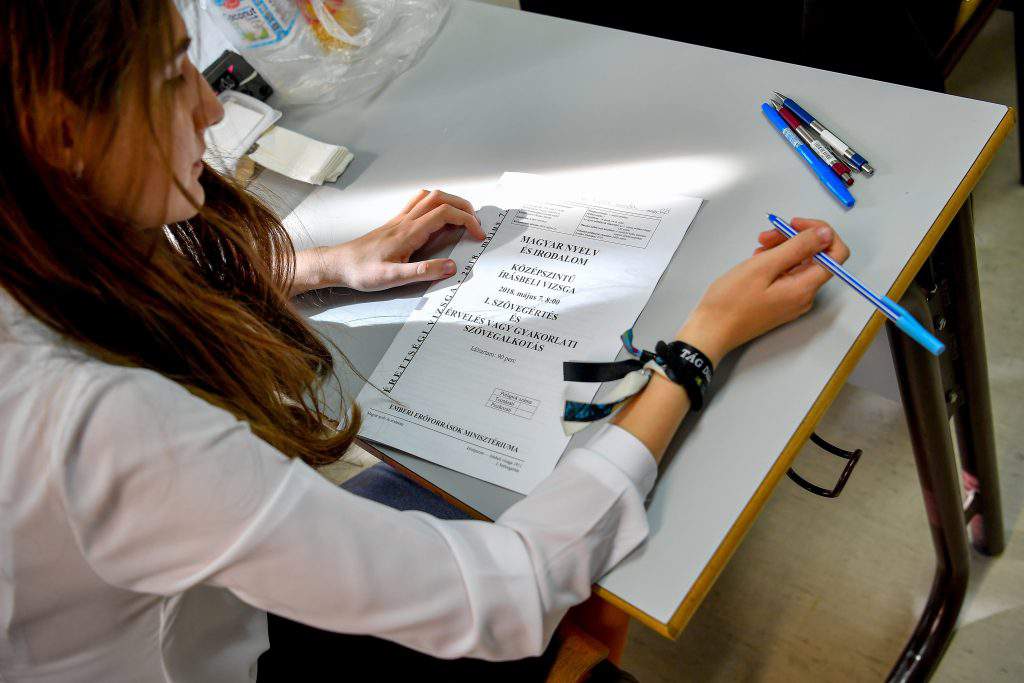A growing number of Hungarians study abroad
In some of the more prestigious secondary schools, more than a third of the last year students are planning their university studies abroad, with the most talented opting for universities like Oxford and Cambridge. According to recent estimates, more than 13 thousand students are pursuing degrees in a foreign country, as eduline.hu reports.
In the prestigious Fazekas Mihály Grammar School, deputy principal Krisztina Barati recounted to eduline.hu that every third school leaver plans to go abroad with 44 of the 132 students applying to a foreign institution of higher education. Great Britain is a preferred destination, with 25 students interested in top-listed universities like Cambridge, Oxford, or University College London, while some others applied for in the US or Germany. As Barati explained, students strategically choose the best foreign institutions as their primary goal, with some second-tier foreign universities as their plan B, but they only mark Hungarian universities on their application forms as a backup plan, in case they do not get accepted in another country.
Still, apparently, they stand a good chance.
According to Milestone Institute, the acceptance ratio to Oxford and Cambridge was highest among Hungarian applicants in the region. Between 2015 and 2017, 26% (137 students) of the Hungarian applying got accepted to either of the two most prestigious English universities, more than those from Austria, the Czech Republic and Slovakia combined.
The principal of another high-ranking secondary school in the capital, ELTE Trefort Ágoston Grammar School said they are experiencing a similar trend. “Earlier, there was about 5-10% of students applying abroad, but this year we have a class with a rate as high 30%”, he told Eduline.
In his farewell speech to the class leaving, he encouraged final-year students to disprove the commonly held belief that those who leave after their school-leaving exams, leave for good.
“We are aware that those who develop a professional network abroad will find it much harder to return than those who pursue postgraduate degrees after doing their undergraduate studies here. But the latter can gain valuable knowledge and experience just the same as those studying abroad.”
The secondary schools of other major cities are witnessing a similar phenomenon on a smaller scale. For instance, in Kazinczy Ferenc Grammar School in Győr, 10% of school-leavers apply abroad. Principal Tibor Németh said some of their former pupils are at Oxford and Sorbonne, but Denmark is famous too for its lack of tuitions fees and programs offered in English. But here, Austria remains the most popular, with some of the students from this Western region of Hungary commuting to their university courses in Austria.

Photo: Czeglédi Zsolt / MTI
A continuing trend
As a recent survey conducted by Engame Academy shows, the number of those interested in going abroad is consistently on the rise. While in 2016, an estimated 11,800 were studying outside Hungary, by 2017 it was around 13,300 students (not counting those spending exchange semesters as part of Erasmus mobility programs).
Particularly shocking is the increase from 2016 to 2017 in those pursuing a degree in Austria or Germany. In 2016, 2122 and 1947 studied in Austria and Germany, respectively, while in 2017, these numbers grew to 2600 and 2500 students. And although the number of those applying to the United Kingdom slightly decreased due to worries instigated by Brexit, 2018 saw their number increase again after the British government’s reassurance that unchanged conditions would pertain to the incoming classes of 2018/19, as Engame’s research showed.
Featured image: MTI / Czeglédi Zsolt
Source: http://eduline.hu/erettsegi_felveteli/2018/5/6/kozepiskolasok_kulfoldi_tovabtanulas_1WRDUH





